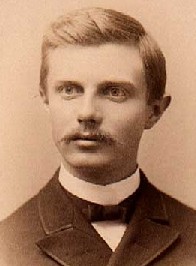
The Significance of Sections in American History
By: Frederick J. Turner
Henry Holt & Co., 1932
By: Frederick J. Turner
Henry Holt & Co., 1932
The Significance of Sections in American History is a collection of essays written by Frederick J. Turner concerning just that - the significance of different sections of the country on the history of the United States. It seems that Turner is trying to convince his audience that there are more sections in America than just North and South, but it appears that the only other sections he could name were East and West. While I found this philosophical work to be tedious and nothing new, there are some interesting things about it. First, it is a collection of works that Turner wrote between 1895 and 1926. I am guessing that the essays were put together in book form in 1932, several years after the last was written, because this was the year in which Turner died. This seems to explain why his ideas feel dated (for the 1930s) - they were probably current or even new when originally written. The other thing that I found interesting was the fact that the Pulitzer was awarded to him posthumously. Posthumous awards always grab my attention because I wonder if there is really a point since the author is not there to see their work being honored. I guess one could argue that it is better than no recognition at all (especially for surviving family members). Just my thoughts on the matter...


